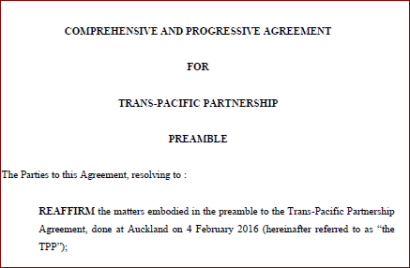LAWS 90094: INTERNATIONAL IP DISPUTE SETTLEMENT: PRINCIPLES AND PRACTICE TAKE-HOME EXAMINATION Semester 2, 2018
Hello, dear friend, you can consult us at any time if you have any questions, add WeChat: daixieit
LAWS 90094: INTERNATIONAL IP DISPUTE SETTLEMENT: PRINCIPLES AND PRACTICE
TAKE-HOME EXAMINATION
Semester 2, 2018
PLEASE ANSWER TWO QUESTIONS ONLY.
You are expected to answer Question 1, which is compulsory.You are expected to answer either Question 2 or Question 3
The questions are of equal value.
QUESTION 1 (compulsory)
Paragraph 5 of the World Trade Organization (WTO) Doha Declaration on the TRIPS Agreement and Public Health (WT/MIN(01)/DEC/2) of 20 November 2001 (‘the Doha Declaration’) includes the statement that:
Accordingly and in the light of paragraph 4 above, while maintaining our commitments in the TRIPS Agreement, we recognize that these flexibilities include:
(a) In applying the customary rules of interpretation of public international law, each provision of the TRIPS Agreement shall be read in the light of the object and purpose of the Agreement as expressed, in particular, in its objectives and principles.
The Report of the Panels in the case Australia - Certain Measures Concerning Trademarks, Geographical Indications and Other Plain Packaging Requirements Applicable to Tobacco Products and Packaging (document WT/DS435/R, WT/DS441/R, WT/DS458/R, WT/DS467/R) includes the observation that “[t]his paragraph of the Doha Declaration may, in our view, be considered to constitute a ‘subsequent agreement’ of WTO Members within the meaning of Article 31(3)(a) of the Vienna Convention” (at paragraph 7.2409).
What is the significance of the Doha Declaration for the interpretation of the TRIPS Agreement in the context of dispute settlement in the WTO?
In answering this question, please:
• consider the status and significance of the rules on treaty interpretation expressed in the Vienna Convention on the Law of Treaties (VCLT); and
• critically examine the observation in the panel reports cited above.
QUESTION 2
(answer either question 2 or question 3)
The Comprehensive and Progressive Agreement for Trans-Pacific Partnership (CPTPP) was concluded by 11 Asia Pacific nations in Santiago, Chile, on 8th March, 2018. Chapter 18 of the CPTPP is headed ‘Intellectual Property’ . Chapter 28 of the CPTPP establishes a distinct dispute settlement mechanism which, in the case of Chapter 18, applies:

(a) with respect to the avoidance or settlement of all disputes between the Parties regarding the interpretation or application of this Agreement; [or]
(b) when a Party considers that an actual or proposed measure of another Party is or would be inconsistent with an obligation of this Agreement or that another Party has otherwise failed to carry out an obligation under this Agreement … . [Article 28.3]
Chapter 18 of the CPTPP includes the following provisions concerning intellectual property:
Article 18.4: Understandings in Respect of this Chapter
Having regard to the underlying public policy objectives of national systems, the Parties recognise the need to:
(a) promote innovation and creativity;
(b) facilitate the diffusion of information, knowledge, technology, culture
and the arts; and
(c) foster competition and open and efficient markets,
through their respective intellectual property systems, while respecting the principles of transparency and due process, and taking into account the interests of relevant stakeholders, including right holders, service providers, users and the public.
Article 18.65: Limitations and Exceptions
1. With respect to this Section, each Party shall confine limitations or exceptions to exclusive rights to certain special cases that do not conflict with a normal exploitation of the work, performance or phonogram, and do not unreasonably prejudice the legitimate interests of the right holder.
2. This Article does not reduce or extend the scope of applicability of the limitations and exceptions permitted by the TRIPS Agreement, the Berne Convention, the WCT or the WPPT.
Article 18.66: Balance in Copyright and Related Rights Systems
Each Party shall endeavour to achieve an appropriate balance in its copyright and related rights system, among other things by means of limitations or exceptions that are consistent with Article 18.65 (Limitations and Exceptions), including those for the digital environment, giving due consideration to legitimate purposes such as, but not limited to: criticism; comment; news reporting; teaching, scholarship, research, and other similar purposes; and facilitating access to published works for persons who are blind, visually impaired or otherwise print disabled.
Tartessos is a country that has just joined the CPTPP after it enters into force. You are advising an interdepartmental committee on the implications of the CPTPP for Tartessos. Exceptions and limitations to the right of reproduction of copyright works are proposed and are in part already incorporated in the law of Tartessos.
(i) Prepare advice for the committee on how these provisions influence the permissible scope under the CPTPP for copyright limitations and exceptions, comparing these provisions with the scope defined by the corresponding provisions in the TRIPS Agreement (you may limit your answer to Articles 7 and 13 of the TRIPS Agreement, but you may also consider provisions of the Berne Convention as incorporated into the TRIPS Agreement) .
(ii) Prepare advice for the committee on whether, and if so how, dispute settlement on intellectual property matters under the CPTPP would differ from dispute settlement under the TRIPS Agreement.
QUESTION 3
(answer either question 2 or question 3)
Cyberia is a middle-income developing country Member of the WTO. Cyberia’s Trademark Act of 2001, generally considered to be compatible with its obligations under the TRIPS Agreement, provides for two sets of remedies against trademark infringement and unfair competition respectively
Section 37 (Trademark infringement)
The owner of a registered trademark shall have the exclusive right to prevent all third parties not having the owner’s consent from using in the course of trade identical or similar signs for goods or services which are identical or similar to those in respect of which the trademark is registered where such
use would result in a likelihood of confusion.
Section 43 (Unfair competition):
Any interested party shall have the right to prevent:
(i) all acts of such a nature as to create confusion by any means whatever with the establishment, the goods, or the industrial or commercial activities, of a competitor;
(ii) false allegations in the course of trade of such a nature as to discredit the establishment, the goods, or the industrial or commercial activities, of a competitor;
(iii) indications or allegations the use of which in the course of trade is liable to mislead the public as to the nature, the manufacturing process, the characteristics, the suitability for their purpose, or the quantity, of the goods.
Parliamentary records make clear that these provisions are directly intended to give effect to Cyberia’s obligations respectively under Article 16.1 of the TRIPS Agreement and under Article 10bis of the Paris Convention ‘as incorporated into the TRIPS Agreement.’
Cyberia has a large, well-educated younger generation but very high levels of youth unemployment. The Ministry for the Economy has launched a Cyberia On-Line Development (COLD) Strategy, aimed at encouraging start-up enterprises in the digital environment and reducing barriers to entry to the on-line market.

One obstacle encountered by small app developers has been an aggressive trademark litigation strategy by major technology firms, notably Pomum Inc., which maintains a widely used platform for selling and distributing software applications (‘apps’) . A small Cyberia startup firm, Pomegranate, developed a series of apps, and was considered an example of the kind of local enterprise that could thrive in the digital economy. It marketed its products as being ‘fully compatible’ with the Pomum platform, and an ‘improved, more secure replacement’ for Pomum software. In a leading case in the Cyberia Supreme Court, Pomum Inc vs Pomegranate Ltd, Pomegranate was found to have breached both Sections 37 and 43 through marketing its apps with reference to Pomum trademarks. This high profile case was considered sound law, but provoked considerable public debate as the defendant was forced out of business as a consequence.

The Cyberia COLD Strategy sought to redress the perceived injustice of this case by creating two exceptions to the Trademark Act.
Section 37 bis Digital interoperability exception
Notwithstanding s37, it shall not be an infringement for any use of a registered trademark to describe a good or service as being suitable for use or interoperability with an application or digital platforms made available to the public by the owner of the trademark registered in respect of that application or platform .
Section 43 bis Fair digital competition
Notwithstanding s43, it shall not be considered an act of unfair competition to present a product as being equivalent to, an improvement to, or suitable for use with an application or digital platforms made available to the public by the owner of a trademark registered in respect of that application or platform .
Article 17 (‘Exceptions’) of the TRIPS Agreement provides:
Members may provide limited exceptions to the rights conferred by a trademark, such as fair use of descriptive terms, provided that such exceptions take account of the legitimate interests of the owner of the trademark and of third parties.
Calefacia is an industrialised economy, a member of the WTO, and the corporate seat of Pomum Inc. Cyberia is seen by trade policy circles in Calefacia as a competitive threat, perceived as posing an unfair challenge to a key economic interest.
You are engaged by the Government of Calefacia to advise on a possible dispute against Cyberia to be pursued through the WTO Dispute Settlement Mechanism.
Prepare a brief for the Government of Calefacia covering these three elements:
1. Possible grounds for complaint under the TRIPS Agreement concerning the digital interoperability exception (DIE) and the fair digital competition (FDC) provisions under the COLD strategy.
2. Possible defences that Cyberia could advance in support of the compatibility of IE and CE with the TRIPS Agreement.
3. Proposals to be put to Cyberia in the course of consultations to minimise the perceived impact on Calefacian business interests.
2023-07-13